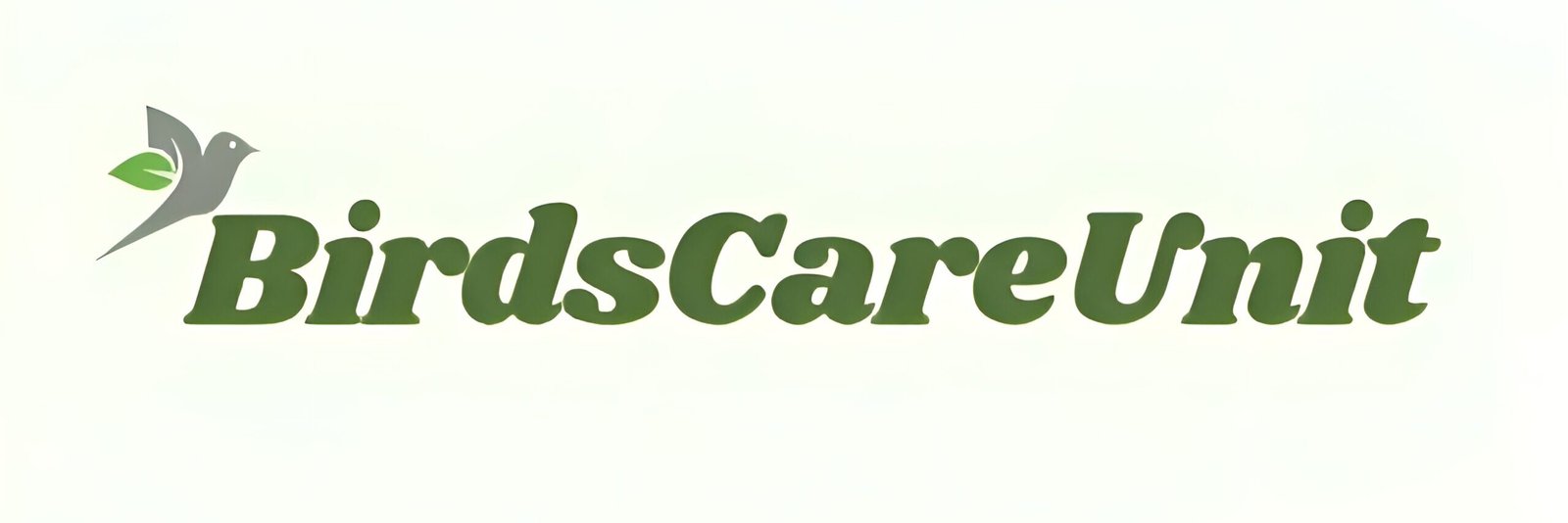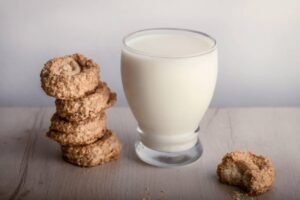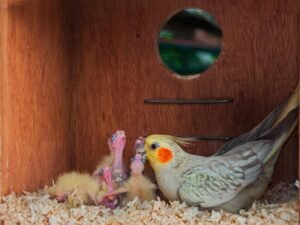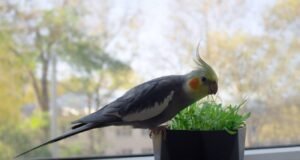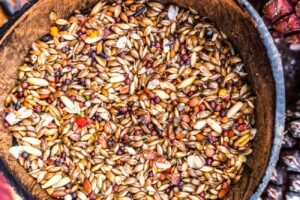What are the Toxic Foods for Cockatiel

With over ten years of experience as a breeder of pet birds, including cockatiels, parakeets, lovebirds, and Barbary doves, I currently care for more than 50 cockatiels. Through countless challenges, I’ve honed my skills in handling various situations effectively. As dedicated caregivers to our feathered companions, it’s crucial to prioritize their safety and well-being, especially by understanding the potential dangers in their diet. Cockatiels, known for their curious nature, may inadvertently encounter foods that are toxic to their delicate systems. In this detailed guide, we’ll meticulously examine the toxic foods that should never find their way into your cockatiel’s feeding bowl. Accompanied by comprehensive explanations, this guide aims to deepen your understanding and ensure your bird’s health remains uncompromised.
Dairy Products:
-Safety Measures: Avoid feeding dairy products to your cockatiel to prevent digestive issues and discomfort. Instead, offer them a variety of bird-safe foods that are easier for them to digest, such as fresh fruits, vegetables, and seeds.
Salty foods:
Excessive salt consumption disrupts the electrolyte balance in cockatiels, leading to dehydration, increased thirst, and renal dysfunction. Processed foods and salty snacks should be avoided to prevent sodium toxicity in birds.
– Safety Measures: Offer low-sodium or unsalted alternatives to snacks and treats, and monitor your cockatiel’s salt intake closely.
Peanuts:
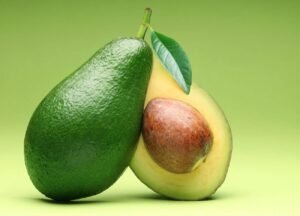
Avocado:
The avocado plant contains a fungicidal toxin called persin, predominantly found in the leaves, fruit, and pit. Even small amounts of persin can lead to respiratory distress, myocardial damage, and fluid accumulation in the lungs of cockatiels.
– Safety Measures: Exercise extreme caution to prevent any exposure to avocado in your cockatiel’s environment, including the fruit, leaves, and pit.
Chocolate:
Chocolate contains theobromine and caffeine, compounds that are toxic to birds. Ingestion of even a small quantity of chocolate can trigger vomiting, diarrhea, hyperactivity, tremors, seizures, and potentially fatal cardiac arrhythmias in cockatiels.
– Safety Measures: Store all chocolate products securely out of your cockatiel’s reach and educate family members and guests about the dangers of sharing chocolate with your bird.
Fruit Seeds and Pits:
– Safety Measures: Always remove seeds and pits before offering fruits to your cockatiel, and ensure that any discarded fruit remnants are inaccessible to your bird.
Tomatoes:
-Safety Measures: Offer ripe tomatoes in moderation, ensuring that only the flesh of the fruit is provided and any green parts are removed. Monitor your cockatiel for any signs of discomfort or adverse reactions after consuming tomatoes.

Xylitol:
Xylitol is a sugar alcohol commonly used as a sweetener in sugar-free gum, candies, and some baked goods. Ingestion of xylitol can cause a rapid release of insulin in cockatiels, leading to hypoglycemia (low blood sugar), seizures, and liver failure. Even small amounts of xylitol can be life-threatening to birds.
-Safety Measures: Keep all products containing xylitol, including sugar-free gum and candies, well out of your cockatiel’s reach, and be cautious about using xylitol-containing products around your bird.
Peanuts
Citrus Fruits (in excess):
Old Water
-Leaving old water in a water pot can potentially be harmful to cockatiels. Stagnant water can become contaminated with bacteria, fungi, and other pathogens that may lead to health issues if ingested by your birds. Additionally, dust and debris may accumulate in the water, further increasing the risk of contamination.
To ensure the health and well-being of your cockatiels, it’s essential to regularly clean and replace their water supply with fresh, clean water. This helps prevent the growth of harmful organisms and maintains a hygienic environment for your birds. Aim to clean and refill the water pot daily to keep your cockatiels healthy and hydrated.
Conclusion
By meticulously understanding and diligently adhering to the guidelines outlined in this detailed exploration of toxic foods for cockatiels, you’re equipped to create a safe and nurturing environment for your cherished avian companion. Vigilance, education, and proactive measures are essential pillars in safeguarding your cockatiel’s health and longevity. Remember, when it comes to your bird’s well-being, meticulous attention to detail is paramount, and prevention is always the best form of protection.
